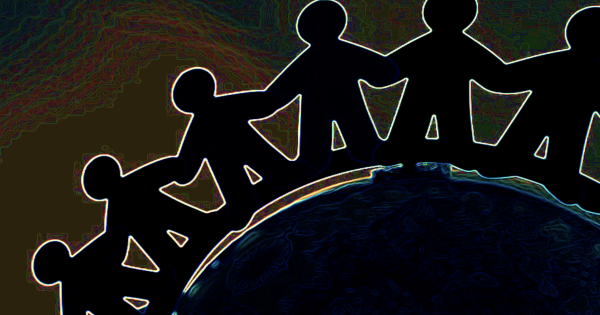You’ve probably all heard of them, whether it’s Goldman Sachs, the G7 countries, the IMF, the World Bank, the UN Security Council, the UN Human Rights Council. the UN, the International Monetary Fund (IMF, also under the auspices of the UN) and more. – and now these BRICS.
This collection of different actors is supposed to make the world a better place for us, the only problem is that there is no “common us” – although some would really like it to be that way.
Cultural, social and political affiliation
Let’s start with the United Nations, this giant organization that seems to have emerged on its own. The UN, created in 1945, has today 193 Member States. The UN Secretary-General heads, among other things, the UN Secretariat, which alone has around 40,000 employees. The Secretary-General and the Secretariat represent the UN as a single organization, but the UN has many sub-organizations, funds and programs with their own employees, their own managers and their own areas of work, such as the World Bank, the UN Security Council. , the United Nations Human Rights Council, the IMF and UNESCO (United Nations Children’s Fund). The IMF was created at the same time as the World Bank and what later became the WTO (World Trade Organization).
How many are employed in the United Nations system (orfamily, as they like to call themselves) maybe someone knows. Perhaps, but I allow myself to doubt it. Particularly because there are many local employees, also engaged, and preferably linked to activities in countries that are not exactly known for controlling everything, as we learned, for example, during the evacuation from Afghanistan.
Anyway, the point is that these organizations should contribute in a (somewhat) different way to peace, to poverty reduction, yes, which is actually expressed in The UN Sustainable Development Goals. But it is above all a question of money, power and influence – and the north-south axis.
The Global South is what used to be called the developing world (underdeveloped countries) or the third world, which would tell the outside world that most of these countries have not experienced the same prosperity and growth of well-being than the countries of the North, or what we could call like the West. This applies not only to economics, but also to politics, especially in the context of human rights (note: defined in the West), and therefore international influence. However, the North/South axis or Western/non-Western countries is not essentially a geographical division, but in the sense of cultural, societal and political belonging.
But it is precisely “cultural, social and political belonging” that has been neglected by many or perhaps considered of no particular importance, because it is considered “flexible”. Or perhaps more precisely: the superior West has tried, and is still trying, to impose our culture, our social order and our political systems on the rulers of the South in order to accelerate their prosperity and growth in well-being , for our own good. All.
The same thinking is the basis of immigration to the West. It’s “just” about strengthening integration and, otherwise, taking the time to help, because then “everyone” will become like us in the West, we thought. We have now learned that this is not how it works. Cultural, social and political affiliation does not change when moving from south to north – unless the people themselves want it and actively work for it.
BRICS
Today, the heyday of the West is about to fall. It is the opposite in the South, particularly under the leadership of China, and the South is organizing like never before, including within BRICS.
BRICS is a forum for cooperation between different countries, named after investment bank Goldman Sachs. In 2001, they awarded the label to various countries they considered promising emerging economies. It was Brace, A.the island, INIndia, China (VShina) and SEast Africa. But it was only in 2010 that BRICS formalized their cooperation. At the Johannesburg summit a few weeks ago, it was decided to expand BRICS to six new countries: Argentina, Egypt, Ethiopia, Iran, Saudi Arabia and the United Arab Emirates . It is – to put it mildly – a bit of a bouquet that promotes cooperation.
Before the BRICS expansion, the IMF estimated that the five member countries accounted for just over 32% of global GDP. It is more than another collaborative forum, namely G7 (the seven richest democratic industrialized countries: Canada, France, Italy, Japan, Great Britain, Germany and the United States) have their share (29 percent).
And yes, a lot of things have to do with money, because as you know, money gives power – and international influence. A BRICS currency modeled on the euro is even under discussion, in particular to free itself from Western currencies. When we talk about liberation, this is exactly what the South wants: it does not want any interference in internal affairs, but retains its sovereignty, especially with regard to the people with whom it wishes to cooperate. We have already seen this in practice, and it has manifested itself once again with, among other things, successive heads of state undertaking a free tour of Africa. How are BRICS positioning themselves so that all of us, except Brazil, do not condemn Russia’s invasion of Ukraine. And it is probably especially within the BRICS that Russia can now find friends. Western sanctions against, for example, Russia and China do not constitute a winning argument in favor of South-North cooperation either.
China’s role within BRICS cannot be underestimated, nor its role in other parts of the world. China is today the largest creditor of countries south of the Sahara, ahead of the World Bank. From 2000 to 2020 Chinese state banks borrowed 160 billion dollars to African governments. Two thirds were spent on building infrastructure: railways, hospitals, dams, roads, airports. But unlike the West, the Chinese impose very few conditions on climate measures, the fight against corruption and human rights. China does not interfere in “internal affairs”, of course, because it can turn against itself.
We therefore fully understand what is likely to happen with BRICS. They want to build themselves big and powerful, so that the West cannot avoid them, just like China.
Tell me who your friends are…
Opinions are divided about BRICS: some think the West should cooperate with them, others think they should oppose them. The latter generally believe that the unity of the BRICS lies in anti-Western (including anti-American) attitudes, that is to say a bit like the OIC (the Organization of Islamic Cooperation is an intergovernmental organization with 57 member countries), where democracy, freedom of expression and respect for human rights. rights are less well respected. Proponents of cooperation like to emphasize that this does not mean that democracy, freedom of expression and human rights are weakened, but on the contrary, it can lead to their strengthening in the south.
A “collaboration” with BRICS is probably coming, but the belief that it will lead to greater cultural, societal and political cohesion we can, by all indications, look far behind. With the decline of Western domination on the front, we should more than ever focus precisely on cultural, societal and political issues. affiliation. There are already too many signs that things are going in the wrong direction, and which are – and are – further reinforced by non-integrative immigration. We weaken freedom of expression, we accept organized Islam and its demands, equality weakens, crime increases. The list is long and there is no sign that it will get shorter.
It is therefore not true that the Global South is not represented in a number of international organizations based in the West, but they have been or are in many inferior contexts, simply due to Western dominance , particularly linked to normative expectations – which many still do not follow. Compare, for example, all the countries in the United Nations system that do not follow The Charter of the United Nations, but they are also trying to reorient themselves here. See, for example, how the OIC partners with the UN Human Rights Council (also with friends like Russia) to make mocking Islam in the West a criminal offense. They tried for decades to make criticism of Islam illegal through the UN, but they probably realized they had to take it step by step. As you know, Denmark has already bitten and made new friends of a caliber that does not arouse the same enthusiasm among everyone. Furthermore, the Danish government, through Foreign Minister Lars Røkke Rasmussen and Prime Minister Mette Frederiksen, also visited Africa this summer, with the argument that Europe needs the Africa as it loses ground in the world.
Certainly, Europe is losing ground, but aren’t there some questions we should ask ourselves before embarking on such friendships? The costs may simply be too high, but there is also something else. Because if we start, as the Danes are doing with their legislative proposals to ban burning the Koran (which the law is supposed to cover in practice), to comply with totalitarian demands through legal prohibitions, then we are in trouble. If it is later discovered that the law does not work as intended (which is unlikely, as it will instead spark new demands), it will likely be seen as a declaration of religious war, as stated by Christian Marcussen, party member. National Integration Council in Denmark, said, “which will make the current security situation look like a pleasant walk in the forest.” It is precisely for this reason that it should not be introduced. In the same way, we have to be careful with our friends, suddenly it is too late.

“Passionate pop cultureaholic. Proud bacon trailblazer. Avid analyst. Certified reader.”







